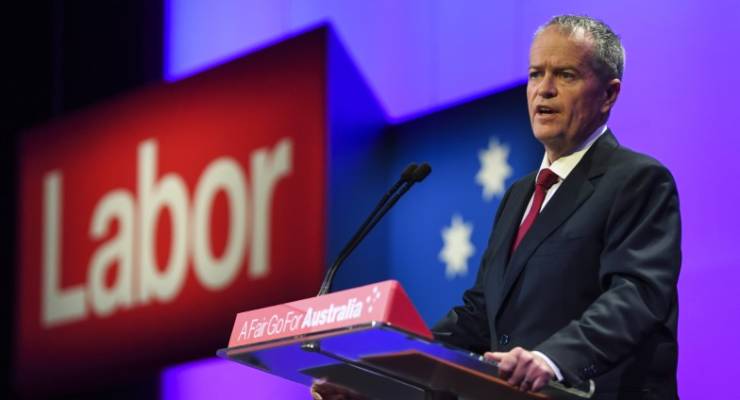
The Coalition is not going to propose any grand schema, so in the absence of such, Labor’s unwillingness to propose a grand theme has created a political vacuum…
Yesterday, Guy Rundle raised the idea that Labor’s focus on “big ticket” rather than “big picture” is a problem. Does Labor lack a grand plan? Or is focusing on big ticket issues another way of addressing big pictures issues? Crikey readers share their thoughts:
On Labor and big picture policies
Rosemary Jacob writes: There is only one issue that really matters … Climate change is the critical issue which will make or break Bill Shorten. Money will be useless if we run out of oxygen, [and are] surrounded by wildfires and rising oceans. He will ensure support from the Greens if he develops a bold policy and invites Greta Thunberg to speak to the nation! I am near the end of my life (at 83) but my great grandchildren are at the start of theirs and I want them to have a hope to match my life span in liveable conditions!
Rob Salter writes: When Labor (or anyone) just announces that they’re going to spend big buckets of money on x, y, or z, and they’re going to fund it by certain changes to tax collection, voters have no framework within which to judge this. I happen to agree with their taxing and spending plans, but they need to be framed in a big picture that should include:
- Moving towards a wholly sustainable, regenerative, circular economy
- The idea that we’re not just individual winners and losers, but that everyone loses when people can’t develop their capacities and solve their problems so that they can better contribute to society, and instead run the risk sometimes of becoming so aggrieved or antisocial that they lash out and actually harm society.
- Ways to better regulate capitalism, given that, notwithstanding its undoubted dynamic and creative capacity, it exacerbates inequality, distorts democracy, games regulatory systems, fails to provide consumers with the information they need to make informed choices, makes life pretty miserable for a large proportion of employees, and disregards the interests of third parties and society as a whole.
- How the state and society have a legitimate role, alongside business, in setting goals for the development of industries (what the right calls “picking winners”), given that, as Mariana Mazzucato points out, the state has a pretty damn good record of picking winners vis a vis private industry.
Overall, I agree that unless voters see these policy proposals within the context of a big picture shaped by a set of coherent principles, they’ll be vulnerable to Morrison’s argument that the money is better in their pocket than in Bill Shorten’s (since most people are pretty partial to money in their pocket).
Chris Gulland writes: The big party machines make it near on impossible to vote for anyone else. Our elections have become theatre slogans and pork barreling. I like the concept of three-term politicians. At least this way we would not get as many busy and forgetful members who conveniently “forget to check their credit card” after family holidays and others who try on every conceivable perk with impunity. With three-year terms [it] would be more difficult to hijack a party’s agenda by long-serving seat warmers, who are propped up by big donations. Australia is one of the best countries in the world, however, the combination of very profitable foreign-owned companies with strong lobby groups, deep pockets, and elected officials with few morals and ethics are dragging us down.
Send your comments, corrections, clarifications and cock-ups to boss@crikey.com.au. We reserve the right to edit comments for length and clarity. Please include your full name if you would like to be considered for publication.







Crikey is committed to hosting lively discussions. Help us keep the conversation useful, interesting and welcoming. We aim to publish comments quickly in the interest of promoting robust conversation, but we’re a small team and we deploy filters to protect against legal risk. Occasionally your comment may be held up while we review, but we’re working as fast as we can to keep the conversation rolling.
The Crikey comment section is members-only content. Please subscribe to leave a comment.
The Crikey comment section is members-only content. Please login to leave a comment.